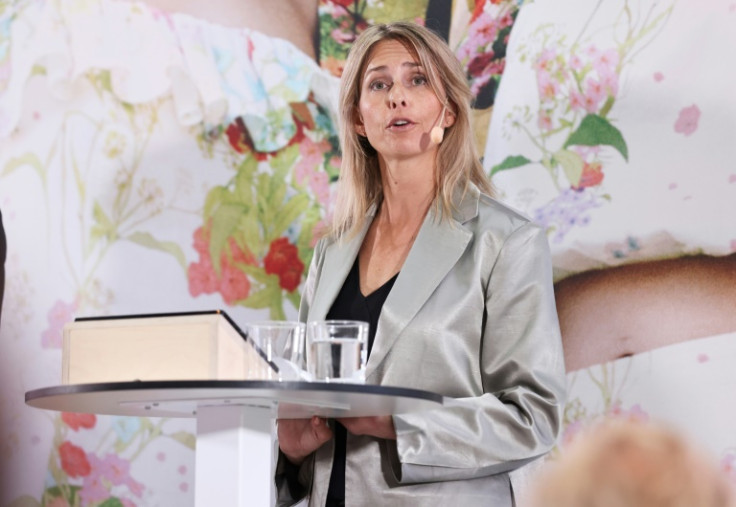
H&M chief executive Helena Helmersson announced Wednesday she was stepping down, sending shares in the fashion retailer tumbling as the Swedish company reported lower-than-expected profits in the fourth quarter.
Helmersson, who has spent four years at the helm and said the job had been "very demanding at times for me personally", will be replaced by Daniel Erver, who has worked for the group for 18 years in various roles and most recently as head of the H&M brand.
The group's shares plunged by nine percent on the Stockholm stock exchange after the announcement.
The Swedish group, the world's second biggest fashion retailer after Zara owner Inditex, posted a net profit of 8.75 billion kronor ($840 million) in 2023, a 2.5-fold increase from a year earlier, citing higher sales and improved margins.
"Our improvement work in the supply chain and continued normalisation of the external factors that influence purchasing costs resulted in a stronger gross margin," H&M said in a statement.
"For many consumers the year was marked by lower purchasing power because of high inflation and high interest rates. Despite this, our net sales in comparable markets increased in relation to 2022," it said.
Net sales rose by six percent for the full year to 236 billion kronor.
But in the fourth quarter, the fashion giant reported a four percent drop in net sales in local currencies.
H&M's net profit in the fourth quarter reached 1.58 billion kronor, up from a net loss of 864 million kronor a year earlier.
But it fell far short of analyst expections of a profit of 3.12 billion kronor, according to a Bloomberg survey.
Operating profit for the year more than doubled to 14.5 billion kronor, corresponding to an operating margin that almost doubled during the period, from 3.2 to 6.2 percent.
The company's fiscal year runs from December to November.
In 2022, the company's withdrawal from Russia after Moscow's invasion of Ukraine and a cost-cutting programme cost it almost 2.6 billion kronor.
The group, which in addition to H&M includes brands such as COS, Arket, & Other Stories and Monki, said it saw "good conditions for continued profitable and sustainable growth in 2024."
It said it aims to "increase sales by 10-15 percent per year with continued high profitability."







